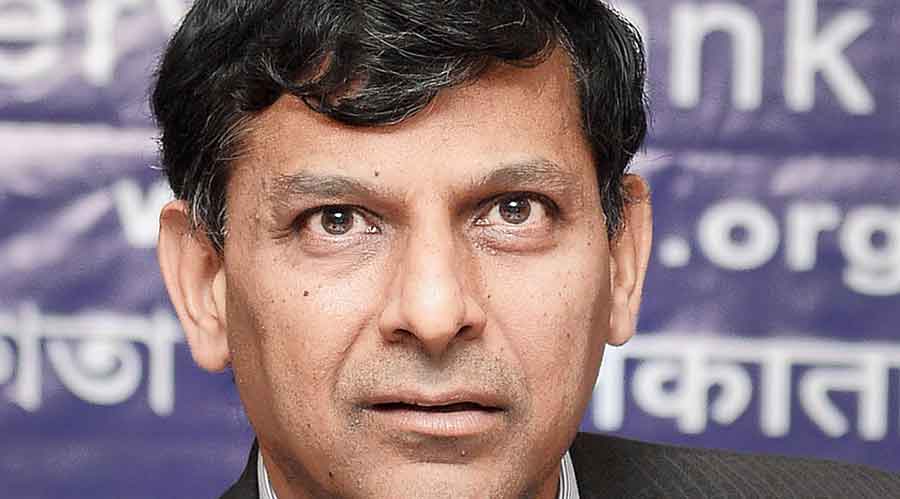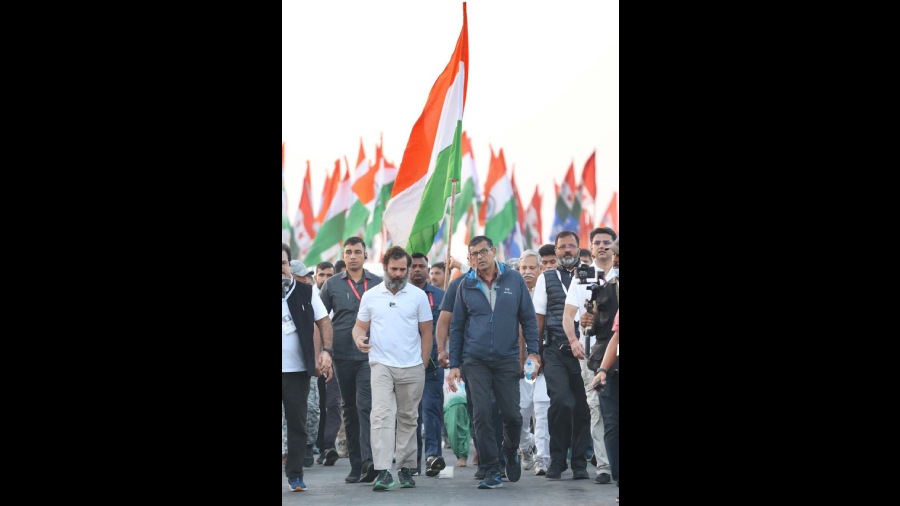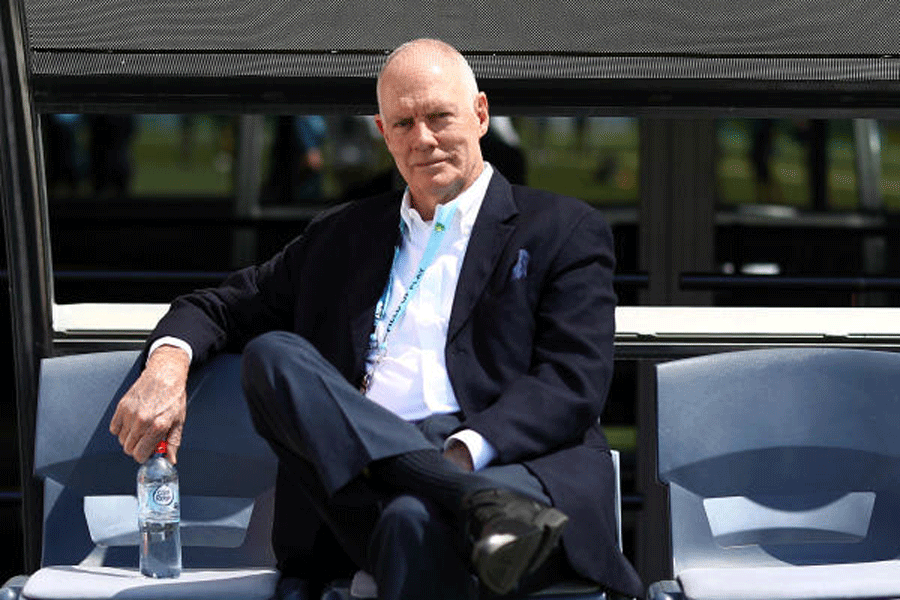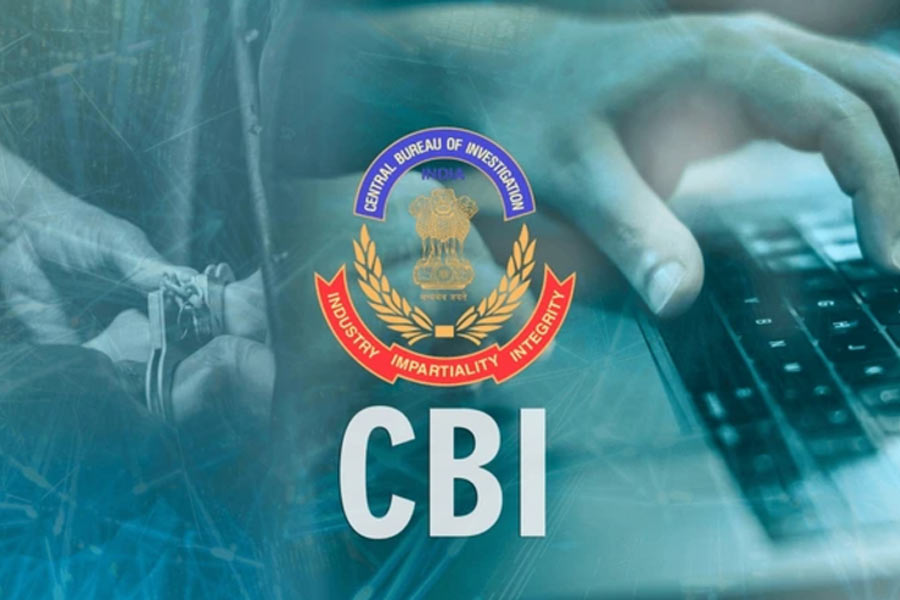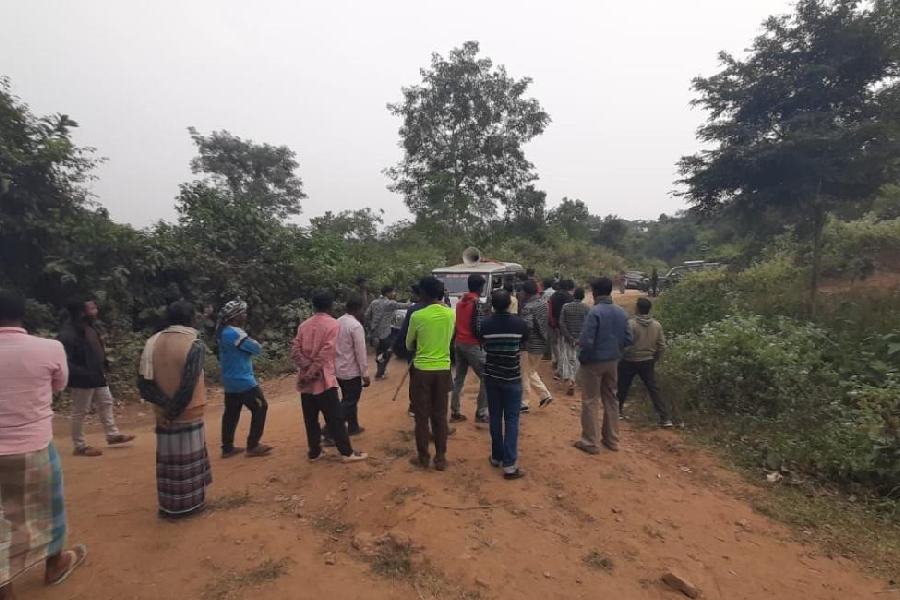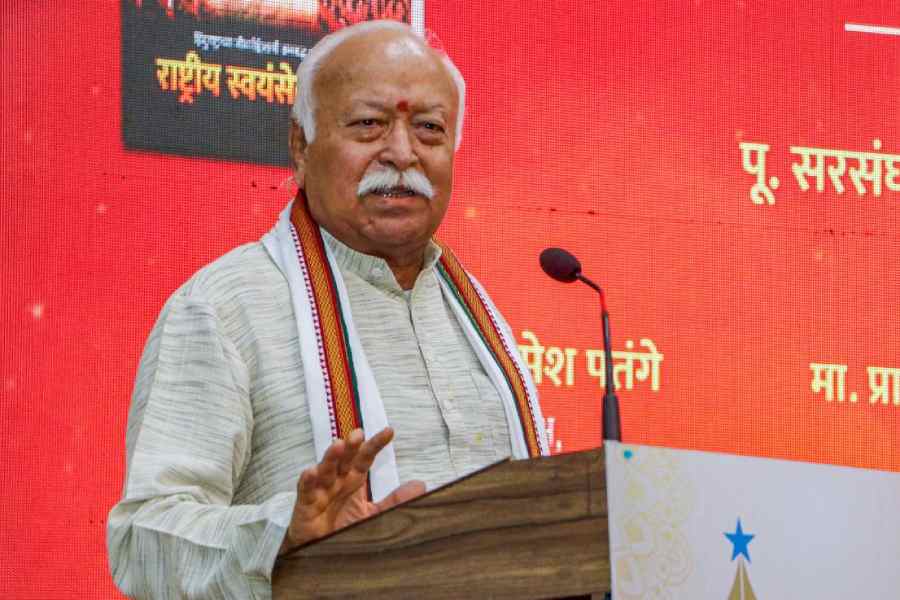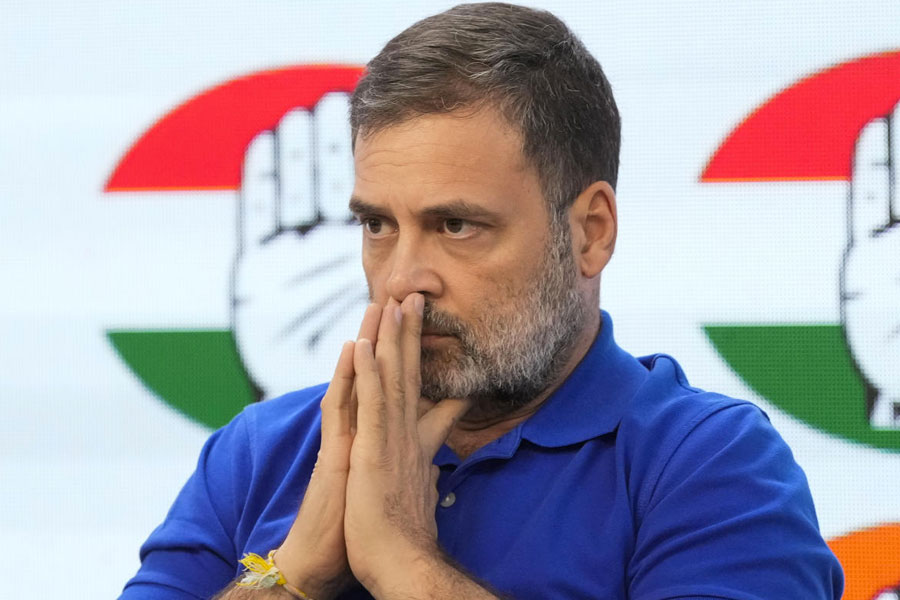Economist and former Reserve Bank governor Raghuram Rajan on Wednesday endorsed Rahul Gandhi’s Bharat Jodo Yatra, arguing that the country needed such a unification drive and India must introspect in which direction it was moving.
While Rahul had a long conversation during a 10km walk in the morning on a variety of subjects, a video of a separate dialogue between the two during the afternoon break released by the Congress dealt with Rajan’s concern for democracy in India.
Pointing out that democracy was India’s strength, Rajan said: “Many countries are looking up to India, seeing what example we set. We must think what we are doing, which direction we are moving in.”
This was in response to Rahul’s suggestion that peaceful coexistence was India’s philosophy and India can play a critical role when hatred was spreading across the world. Rajan said: “What you are doing… this communal violence. You are on a padyatra for peace. I think that is something the country needs. Regardless of what political party you are in, everybody has to think we have to unite India. Somebody told me you said in a speech that a family where brothers keep fighting can’t flourish.”
Rajan added: “You need internal harmony for external peace. Many people think we can fight internally, we can suppress our minorities but we will be strong outside. Nahin ho sakta (not possible).” Rajan, who lives in the US, told Rahul that he had specifically come to Rajasthan to join the Bharat Jodo Yatra.
He disagreed with the perception that the Indian economy was doing well and insisted that the reforms that were needed didn’t happen and certain positive measures in force should have been on a much larger scale. Asked by Rahul about the economy, Rajan said: “Next year is going to be more difficult than this one. Of course, this year saw lots of difficulties, including the war, but the growth is going to slow. People are raising interest rates, so the growth is going to be slow. India is also going to be hit. Indian interest rates have also gone up. Indian exports are slowing quite a bit. And India’s inflation problem is more a commodity inflation and that is also a negative for growth.” Rajan added: “We would be lucky if we do 5 per cent next year. The problem with the growth numbers you have to understand is that what you are measuring with respect to. If you had a terrible quarter last year and you are measuring with respect to that, your growth looks good. What you should really do is look before the pandemic in 2019 and now in 2022. It is 2 per cent a year. Too slow for us.”
Asked what he attributes this to, he said: “Pandemic. But we were slowing before the pandemic. We had gone from 9 per cent to 5 per cent. We haven’t generated reforms which will generate growth.”
When Rahul asked about growing inequality and how the incomes of four-five industrialists had grown in this period, Rajan said: “Not only industrialists, even the upper middle class wasn’t affected because they could work from home. The poorest got something from the government. The worst affected was the lower middle class.”
He said: “Policies should be made for them. They are suffering enormous pain. Concentration of wealth of course needs to be looked at. We are not against capitalism but competition is needed. We have to fight against monopolies. Small businesses are good for the country.” Rajan stressed the need for growing services export, food processing and a green revolution of another kind with focus on solar plants, windmills and sustainability.

